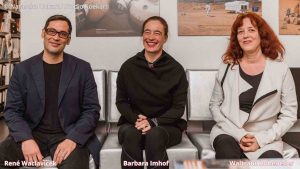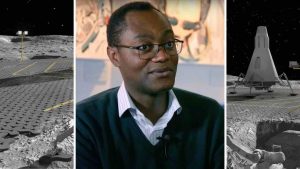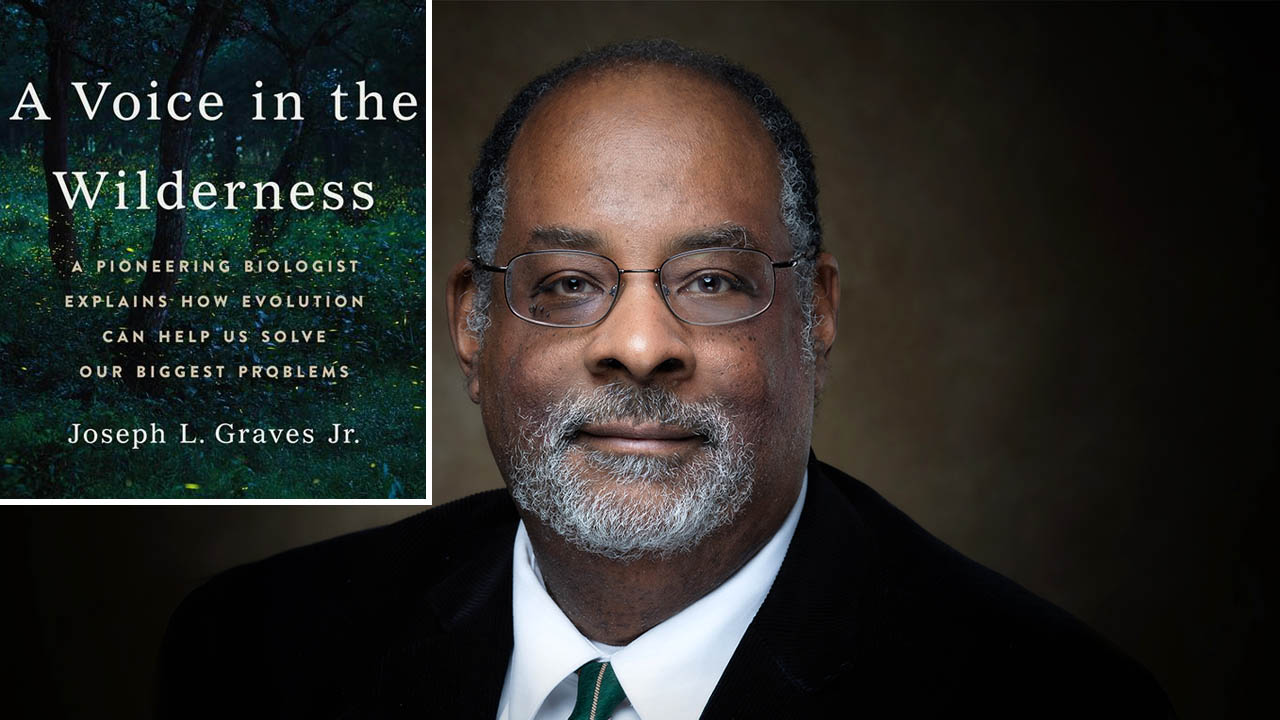
Joseph L. Graves Jr - kosmomagazine.it
We metJoseph L. Graves Jr., evolutionary biologist, geneticist and professor atNorth Carolina A&T State University in Greensboro, North Carolina (USA). Graves has been the first Black American to earn an evolutionary biology Ph.D in 1988. Drawing upon his background in evolutionary biology and genetics, he has also written a lots of books that address myths and theories of race in American society like “Racism, Not Race: Answers to Frequently Asked Questions” and “A Voice in the Wilderness“. Then, he has made appearances in six documentary films on these topics.
You’ve been the first Black American to earn an evolutionary biology Ph.D. How has the American society changed from 1988 to today? Can the black scientists realize their dreams?
It depends upon what you mean by “dreams”. Our dream is not to be token additions to the science enterprise, but to have a real say in how scientific research is imagined and implemented. In 1951 the Harlem Renaissance poet, Langston Hughes wrote a poem known as “A Dream Deferred”. The final lines go:
Maybe it just sags
like a heavy load.
Or does it explode?
There has been some progress in expanding the number of African Americans in evolutionary science and science careers in general (see: Graves JL. African Americans in evolutionary science: Where we have been and what’s next, Evol. Ed. Outreach, 10.1186/s12052-019-0110-5, 2019). However, the scientific enterprise is still dominated by persons of European descent, through their overwhelming representation in the departments of top research universities, government laboratories, and industry. This means that the questions investigated by the American scientific community still in the main differentially benefit persons of European descent (see: Graves JL. Kearney M. Barabino G. Malcolm S. Inequality in science and the case for a new agenda, Proc. National Acad. Sciences USA, Perspectives on Racial and Social Justice, 2022; doi: 10.1073/pnas2117831119). In addition, the United States is now undergoing a backlash against movements for social justice.
The US Supreme Court (SCOTUS) decision that allowed for Affirmative Action (AA) programs designed to diversify the faculty and student body of Historically White universities (HWIs) is about to be overturned. This would drastically curtail the number of racial minorities that enter science programs at these institutions. At the same time, the research infrastructure of the Historically Black Universities (HBCUs), Minority Serving Institutions (MSI), and Tribal Colleges has been badly underfunded. Should SCOTUS overturn AA, then I and others have called for a “moon shot” type investment into HBCUs, MSI, and Tribal Colleges to equalize opportunity in higher education. With such a commitment, American society may indeed “explode.”
Credit: University of Maryland 2015
In your book “A voice in the wilderness” you try to unite your difficult path and the evolutionary science. Your goal is making it clear that we are human beings who evolve, who change over years? Human beings, animals and insects are part of this planet, and we are all brothers. Does your book want to teach us this too?
“Voice” has two purposes. The first was to acquaint the reader with the torturous path that I took to become an evolutionary biologist. The second was to explain why it was so important that I took that journey. One of my great predecessors, Theodosius Dobzhansky said: “Nothing in biology makes sense, save in the light of evolution”. As human beings are biological entities, everything about us is related to the evolutionary forces that brought us into being. Some key points in human evolution that everyone should understand are:
- Humans are a young species, arriving in the history of life within the last 2 minutes. Thus, if we turned the history of life into a calendar year, we arrived on the scene on December 31th at 11:58 PM.
- The formation of species and their extinction are consistent features in the history of life.
- The average duration of a large bodied species in the history of life is about 1,000,000 years (or about 2 hours on the calendar year scale).
- The primary adaptations that define humans are our intelligence, social structures, and walking upright.
- These adaptations are a blessing and a curse. Of the approximately 8 intelligent human-like species that existed when our species first formed in Africa, we are the only one that still exists.
- All the humans on this planet are descended from the first humans who evolved in Africa. All humans share 99.9% of their genome in common. Two Africans drawn at random are actually more genetically different from each other, than 1 African and 1 European drawn at random. This is because most of the genetic variability in our species exists in Africa.
- During the ancient migration around the planet, natural selection (NS) produced adaptations to novel aspects of the new environments, e.g. solar intensity, lactase persistence, altitude, parasitic disease, arctic living, high fat diet, starchy diet. These were mostly due to simple genetic changes. The genetic differences were not enough to form biological races. WE HAVE NO EVIDENCE THAT COMPLEX TRAITS SUCH AS INTELLIGENCE OR PERSONALITY WERE ALTERED BY NS DURING THIS ANCIENT MIGRATION. Thus fascist, white supremacist ideas of genetically-based superior Eurasian intelligence are not based in science.
- If we do not solve our social contradictions, we will not exist much longer (Voice, Chapter 14, The evolutionary science of social justice). Without social justice we will not be able to deal with our existential problems such as climate change, nuclear proliferation, or pandemics.
For you, why was the racism born? Why did the white man always think he was superior?
My recent book with Alan Goodman: Racism, Not Race: Answers to Frequently Asked Questions (New York: Columbia University Press), explains that Europeans did not always think they were superior. Marco Polo did not write about race, nor did he think that Europeans were superior to the Chinese in 13th century. Nor did the Moroccan scholar, Ibn Battuta, who traveled through the Eastern hemisphere in the same time period expose such ideas. Global ideas of white supremacy were born with the colonization of the Western hemisphere and institution of chattel slavery. In 1600, Giordano Bruno was burned by the inquisition not just for his belief in exoplanets, but for his adherence to the “Pre-Adamite” race theory, which claims that only Europeans were the descendants of Adam and Eve.
Later, in 1619 Lucilio Vannini argued that Africans had descended from apes, and he was also executed by the inquisition. Naturalists in the 18th century were not uniramous in their belief that Africans were inferior to whites. The German John Friedrich Blumenbach (1752—1840) did not think that human races could be ranked; Gottfried Von Liebnitz (co-inventor of the calculus) also did not think that Africans were inferior to Europeans. However, in the 19th century as the economic value of chattel slavery and colonialism increased to all time highs, European (and now American) naturalists agreed on the inferiority of non-whites and the separate creation (polygeny) of the human races. This view was not seriously scientifically challenged until Charles Darwin published “The Descent of Man and Selection in Relation to Sex” in 1871.
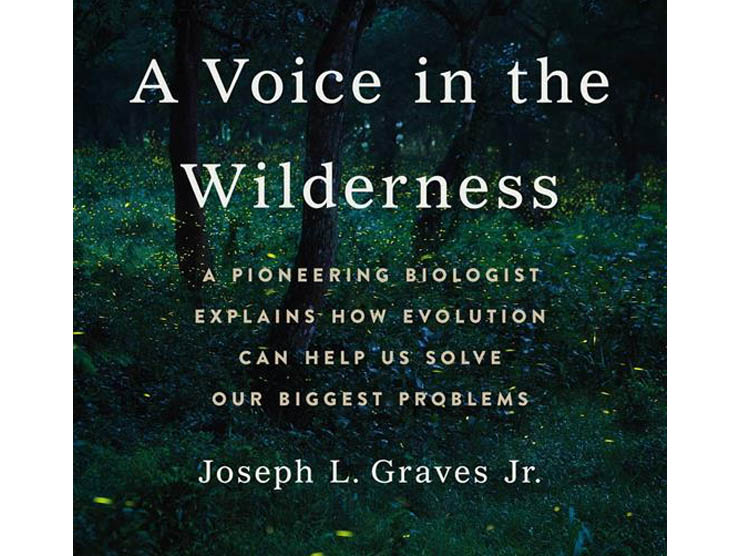
How was the American society in New Jersey in 1955, when you were born? How was your childhood?
New Jersey, like all of America in the 1950’s was wedded to white supremacist ideology. I grew up in Westfield, a town that was a “bedroom” community of New York City. Due to its proximity to the train line that ran into Manhattan, the north side of town was inhabited by Wall Street and Madison Avenue executives. In my education there I had to compete with children who were born with every sort of privilege American society had to offer. Of course, these families needed their servants, they all lived on my side of town.
I was born just 4 months before Emmitt Till was lynched in Money, Mississippi. This event is credited with beginning the American Civil Rights struggle of the mid-20th century. My parents did all they could to shield us from the violent racism of American society but that was simply impossible. The school system thought that all African American children were intellectually inferior. When our parents took us home to visit our grandparents, we were directly exposed to the Jim Crow system of legal racial discrimination.
Yet despite the overall structural racism of American society, many persons of European descent increasingly began to realize how unjust this system was. They did not directly take on white supremacy as a system, rather for most people it was individual acts of kindness. Many of my best friends were “white”, indeed “Voice” is dedicated to two European Americans (Tom Gockel and Mark Pinto) who have been my friends for life (we met when we were 13). White teachers throughout my educational journey made crucial interventions in my life. In elementary school a teacher who recognized my potential got me transferred into the advanced education group, in high school I had two outstanding biology teachers, as well as great college and university professors.
How was your passion for science born?
Part one of “Voice” is entitled “The Unexpected Path”. There was nothing in my background that predicted that I would become a scientist. My mother and father could barely read a newspaper. No one in my immediate family had graduated from college. Probably the most important event that placed me on the road to a science career was my love affair with the “Diva Caissa”. The goddess of chess came into my life when I was eight years old. When first I took up with her, I did not realize that she was very possessive! The goddess is very selective in her choices and seeks out people like me. She showed me that my mind was very suited for this sport. It required the capacity for deep concentration, the necessity of recognizing the significance of theory, and also the willingness to abandon theory when called for to achieve victory.
The second factor that contributed to my passion for science was science fiction. I began reading the comics of Stan Lee (Marvel Comics) at a very young age. From comics, I was drawn to the great masters of scifi such as Arthur C. Clarke and Isaac Asimov. But more than anything, it was my attraction to the television program: Star Trek. The significance of Star Trek cannot be understated for American society cannot be understated. It was first TV show with an interracial cast, with the non-white members of the cast presented as intelligent and courageous persons. My favorite character, was the science officer, Mr. Spock (played by Leonard Nimoy). His logic and passion for justice made me think about the possibility of a life in science.
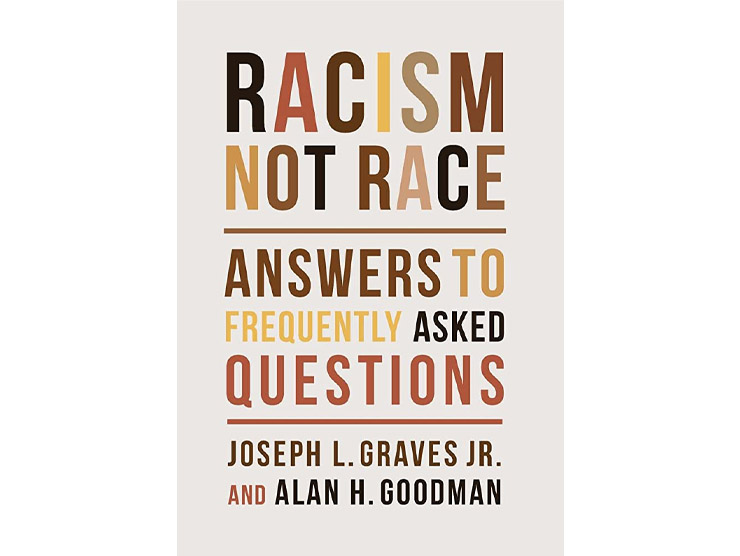
What advice would you give to the young dreamers, who wants to realize their dreams? What do you think the United States and the world should change or improve to eliminate racism?
Do not let your dream “explode”. The most important thing you must overcome is “imposter” syndrome. The problem is not you, it’s an unjust system. So, for us (non-whites) the pursuit of any career goes together with the struggle for social justice.
In Racism Not Race (2022) and Voice (2022) I lay out why and how we can eliminate racism. It begins with accepting the scientific fact that humans do not have biological races. The dismantling of this myth began with Charles Darwin in 1871. The science of genetics advanced such that by mid-century there was overwhelming evidence that our socially defined races were not real. Despite the science, fascists worldwide buttressed their program in racism (Britain, Germany, Italy, Japan, and the USA).
The program to teach the reality of human biological unity will differ by region. In 2019 I spoke in Eastern Europe where 19th race categories are still taught in primary schools as if it was legitimate science; in that same year I spoke in India where color caste supremacy is still the norm, on my visit to China a few years earlier, people came up to me and attempted to run the pigment off of my face.
So clearly, we have work to do as an international community, who genetically are still all Africans. The benefits of anti-racism are apparent. Imagine living in a world where it is normal to judge people by the content of their character, as opposed to the “race” they belong to. Think of the human potential we can unlock, as we must now join as one to prevent the extinction of our species.
Of course, the alternative is to keep on going like we are going. Do this, I guarantee that we will all explode!

